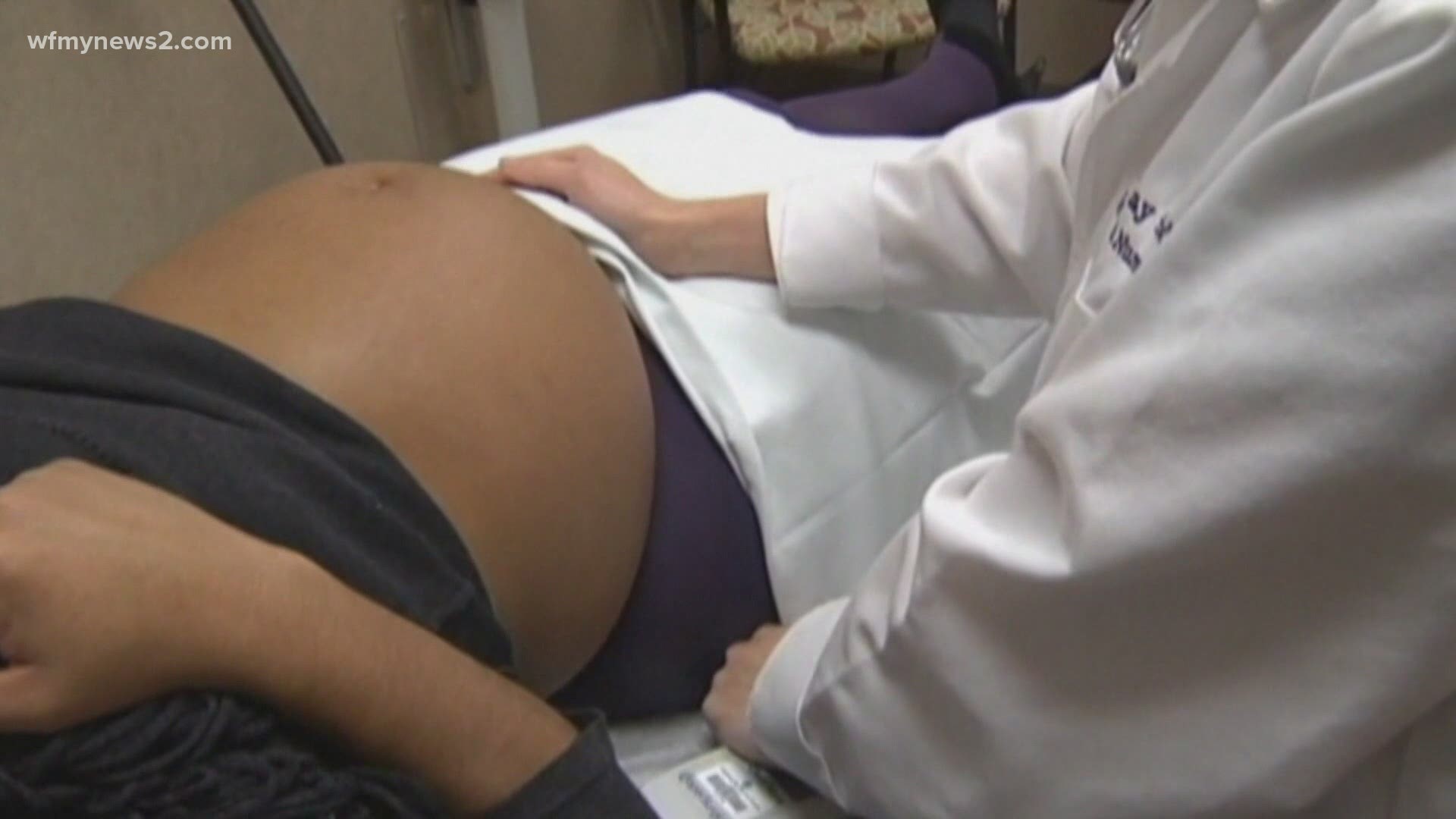WINSTON-SALEM, N.C. — As the COVID-19 vaccine continues its rollout, more patients are having conversations with their doctors to determine whether they should get it.
Wake Forest University Chair of Obstetrics and Gynecology Dr. Phillip Heine has had conversations with patients that are pregnant because he knows at some point, that group will be up to get the vaccine.
"I think the question we should ask ourselves, every one of us, is 'What is the risk of disease versus the risk of the vaccine?' and we know a lot more about the risk of disease," said Dr. Heine.
Heine said it's not uncommon that pregnant women are left out of vaccine trials, as that's what happened in the COVID-19 vaccine trial.
"It's unfortunate that that’s usually what happens. Pregnant women and children are usually not in the first phase," said Heine, "Usually it's healthy adults, they see what happens and then they take the trial to pregnant women and children so in these trials they excluded pregnant women."
However, Heine said there were some women who accidentally got pregnant during the COVID-19 vaccine trials, but no safety issues came up.
"I am reassured looking at the nonpregnant population about the safety profile of this vaccine and I think it would be a significant benefit to them even if they are pregnant," he said.
Heine said women should consider the impacts contracting COVID-19 could have when talking to their physician and making a decision.
"Pregnant women who get the disease have a slightly increased risk of hospitalization compared to nonpregnant women their age and have an increased morbidity and have a slightly increases risk in mortality," said Heine, "It's rare that these events would happen but they can occur and we know they're there."
Heine said thousands of pregnant women have received the vaccine to date, and no safety signals have come up, but more data is needed.
"The risk of vaccine really is a theoretic risk. We don’t have great data on vaccine and pregnancy. Dr. Fauci came out recently and said 10 thousand pregnant women have received the vaccine to date pregnant healthcare workers and there have been no safety signals to date. That is very reassuring but we need more data," he said.
RELATED: Triad infectious disease expert shares where coronavirus safety and vaccine efforts are heading
In fact, Heine suggests the COVID-19 might actually help the mother and her newborn, if the antibody transfers, although more research needs to be done.
"Much like the flu vaccine helps the newborn, the COVID vaccine might also help the newborn," said Heine.
Heine said the idea has also been floated that the COVID-19 vaccine impacts fertility, but doctors have not found that to be the case.
"The data suggests that there is no interaction, there is no increased risk of miscarriage one with COVID infection or COVID vaccine," said Heine, "We really have not seen an impact on the fertility rates in areas that have high covid infections. We think this was a red herring, we don’t think this exists at all as far as infertility."
Heine said there have been similar component vaccines developed in the past that have been given to pregnant women, like the flu vaccine, hepatitis A and hepatitis B.
"Really most of us in the vaccine world think that there is no additional risk of the vaccine to a pregnant woman compared to a nonpregnant woman. So in other words their risk is the same," he said.
"We know COVID disease is pretty significant and can be pretty significant in pregnant women. Over here we have a pretty low risk of the vaccination in pregnant women and that’s why ACOG and all of our national organizations said we should make it available to pregnant women after a discussion with their physician," he said.
Heine encourages everyone to have a conversation with their physician first.

